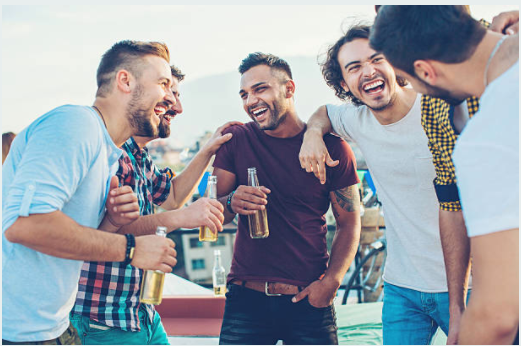People with bipolar disorder may drink a lot of alcohol as a way to cope with 'lows', or to boost an already 'high' or sociable mood. People with bipolar disorder seem to drink for the same reasons as everyone else when they are well and are free of symptoms.
Drinking alcohol can make bipolar symptoms worse and make people more likely relapse. This can happen with moderate alcohol consumption - up to 4 drinks a week for men and up to 2 drinks a week for women. This is especially so when the condition has just been diagnosed.
For example:
Women with bipolar disorder who drink more alcohol (either more drinks over the week or more drinks each day) tend to:
- relapse more often into depression
- relapse more often into hypomania
- have more severe symptoms of depression.
Men with bipolar disorder who drink more alcohol (either more drinks over the week or more drinks each day) tend to:
- have more visits to hospital emergency departments.

Drinking alcohol can also give you more of the side-effects from the medications such as lithium, lamotrigine and quetiapine. For example, alcohol can make you:
- feel more dizzy,
- feel more sleepy, and
- find it harder to concentrate.
Some people may also find it harder to think and make judgments.
It is important that you talk to your psychiatrist or GP first before you change or stop taking your prescribed dose of medication.
It is a good idea to talk about your alcohol use with your psychiatrist and GP when you decide which treatment options might best suit you. You may also want to think about drinking less alcohol or not drinking at all as a way to help stay well and prevent relapse.

